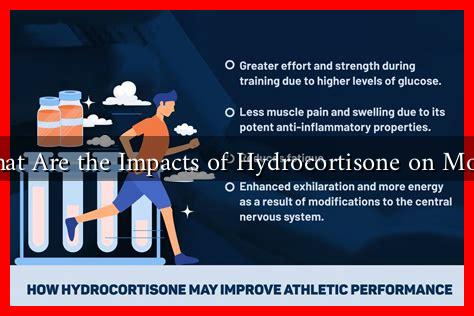-
Table of Contents
What Are the Impacts of Hydrocortisone on Mood?
Hydrocortisone, a synthetic form of cortisol, is a steroid hormone produced by the adrenal glands. It plays a crucial role in various bodily functions, including the regulation of metabolism, immune response, and stress management. However, its impact on mood and mental health is a topic of growing interest and concern. This article explores the effects of hydrocortisone on mood, examining both its therapeutic benefits and potential side effects.
The Role of Cortisol in Mood Regulation
Cortisol is often referred to as the “stress hormone” because its levels increase in response to stress. It helps the body manage stress by providing energy and modulating various physiological processes. However, chronic high levels of cortisol can lead to negative mood changes, including:
- Increased anxiety
- Depression
- Irritability
- Difficulty concentrating
Conversely, low levels of cortisol can also affect mood, leading to fatigue and a lack of motivation. Understanding the balance of cortisol is essential for maintaining emotional well-being.
Hydrocortisone as a Treatment
Hydrocortisone is commonly prescribed for conditions such as adrenal insufficiency, autoimmune disorders, and severe allergies. In these cases, it can help restore normal cortisol levels, which may improve mood and overall quality of life. For instance, patients with Addison’s disease, a condition characterized by insufficient cortisol production, often report significant mood improvements once they begin hydrocortisone therapy.
Case Study: Addison’s Disease
A study published in the Journal of Clinical Endocrinology & Metabolism highlighted the experiences of patients with Addison’s disease who underwent hydrocortisone treatment. Many participants reported enhanced mood stability and reduced feelings of anxiety and depression after starting therapy. This suggests that restoring cortisol levels can have a positive impact on mental health.
Potential Negative Effects on Mood
While hydrocortisone can be beneficial, it is not without its drawbacks. Long-term use or high doses of hydrocortisone can lead to side effects that negatively impact mood, including:
- Increased anxiety and agitation
- Emotional instability
- Sleep disturbances
- Weight gain, which can lead to body image issues
These side effects can create a cycle where the treatment intended to improve mood may inadvertently contribute to mood disorders. For example, a patient on long-term hydrocortisone therapy may experience weight gain, leading to decreased self-esteem and increased anxiety.
Statistics on Mood Disorders
According to the World Health Organization (WHO), depression affects over 264 million people worldwide. The relationship between steroid use and mood disorders is significant, with studies indicating that up to 50% of patients on long-term corticosteroid therapy may experience mood changes. This highlights the importance of monitoring mental health in patients receiving hydrocortisone treatment.
Managing Mood Changes During Hydrocortisone Therapy
For individuals undergoing hydrocortisone therapy, it is crucial to manage potential mood changes proactively. Here are some strategies:
- Regular mental health check-ups with a healthcare provider
- Engaging in physical activity to boost mood
- Practicing mindfulness and stress-reduction techniques
- Maintaining a balanced diet to support overall health
Additionally, open communication with healthcare providers about any mood changes can lead to adjustments in treatment plans, ensuring that the benefits of hydrocortisone outweigh the risks.
Conclusion
Hydrocortisone plays a complex role in mood regulation, offering both therapeutic benefits and potential side effects. While it can significantly improve mood in individuals with adrenal insufficiency, long-term use may lead to adverse mood changes. Understanding these dynamics is essential for patients and healthcare providers alike. By monitoring mental health and implementing effective management strategies, individuals can navigate the challenges of hydrocortisone therapy while maintaining emotional well-being.

